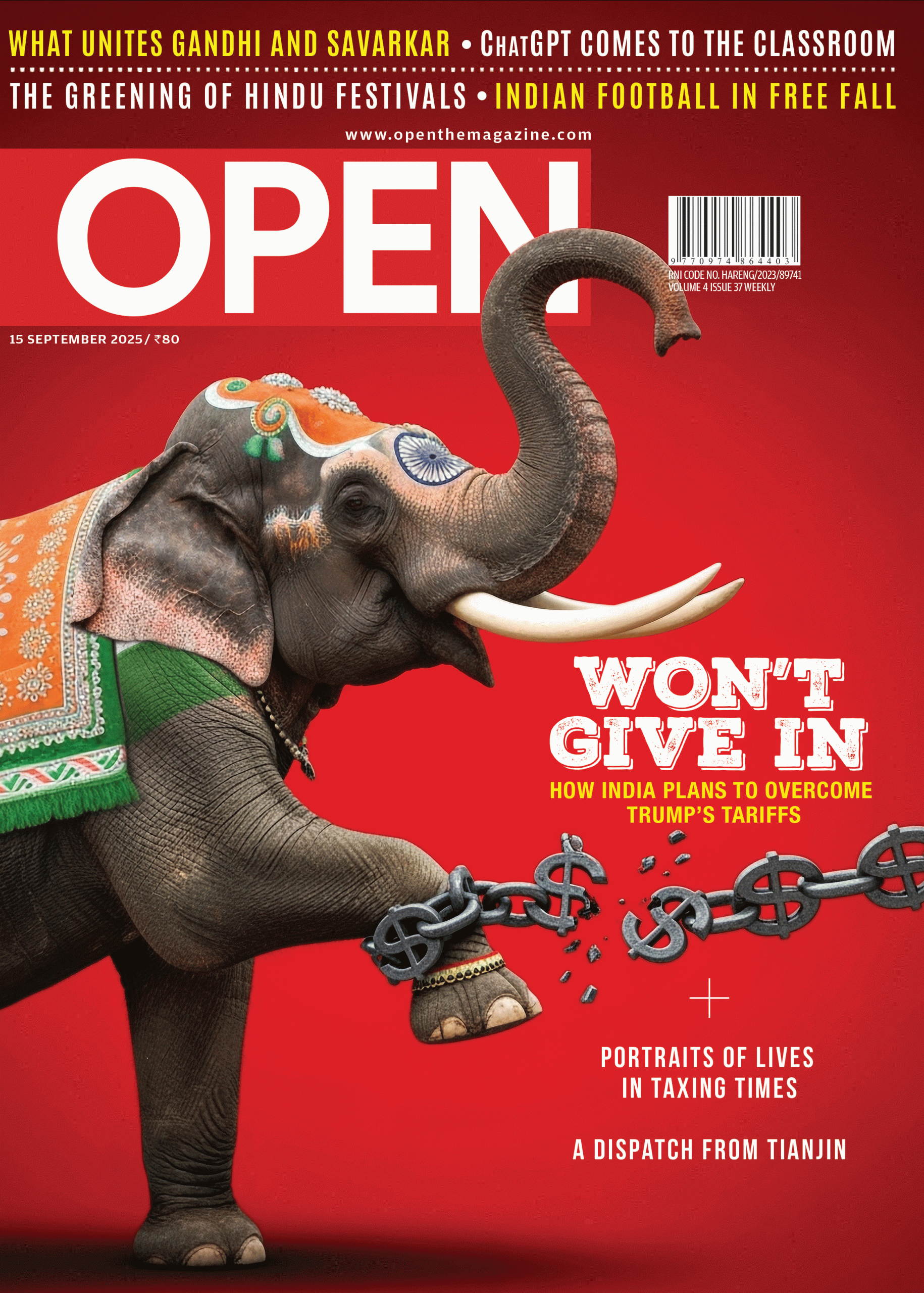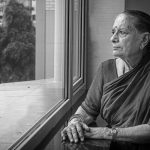/wp-content/uploads/2015/11/smalltwon-love1.jpg)
How the other India does it
PATNA, BIHAR
TEXT: CHINKI SINHA
That afternoon at the restaurant, Tanweer Kamal left his wallet behind, pretended he was taking a phone call and went outside. As he had expected, the girl checked the contents and found a neatly folded sheet of paper inside it. It had her name and ‘I love you’ written in blood. They had been sipping cola in a dimly lit restaurant. It had been a couple of years since they started talking and meeting.
When he entered, she asked him about it, and he said he never had the courage to tell her how he had loved her all these months. The girl began to cry. She said if he loved her so much, he could have just written to her. “Why not ink? Why this blood?” she kept saying.
What she didn’t know was that, for Kamal, this was standard operating procedure. “I never wasted any blood,” says the 30-year-old lawyer. If he cut himself by mistake while shaving, he would be prudent enough to scribble ‘I love you’ on a paper using that blood. He says, “I always kept two or three letters like this handy. I even gave one to a friend who wanted it. You can give a thousand gifts, but unless you write in blood, a tradition established many, many years ago, you won’t really be seen as the intense lover.”
His cousin cut his wrist to write these long letters to a girl. “But one needs to be innovative, not stupid,” he says. In Patna, there were these odd spaces where couples could get a little private time. Like Daffodils restaurant, which was often raided by cops. It was located in this strange mall-like structure, carved out of an old haveli. The restaurant had these little cubicles with curtains, which were drawn to give couples privacy. There was an hourly rate and couples found the dim lights of the restaurant most convenient. When their time was up, they quietly walked out. For those hours behind the curtains, they were not disturbed. At first, Daffodils had proper cabins.
Then a raid took place and the cabins became cubicles with thick curtains. More raids, and the curtains got shorter. The restaurant is now closed.
SURAT, GUJARAT
TEXT: AASTHA ATRAY BANAN
Dhwanil Patel yearned for a girlfriend ever since he was 21. His mother had told him that whatever else he might do with life, his girl would be her choice and of their caste. She saw Janaki Patel at a wedding and knew she would be the ideal one for her son. The two were introduced and Dhwanil was told that Janaki can be his girlfriend, provided they get married one day. He agreed and so did she, though Janaki was taken aback at the prospect when it was first suggested.
Both are 23 now and belong to well-to-do families. Dhwanil’s sister Pinal says, “My brother has a readymade girlfriend, who he will now marry.” The couple are sitting together at Coffee Culture, a popular hangout in Surat. He is outgoing, she is reserved. Once in a while, he fondly touches her arm or cheek. She says, “I was shocked when we got engaged. But then, I feel, love doesn’t happen overnight.
As I have got to know him, I have slowly fallen in love with him.”
He imagines that when they do start having sex, it will be awesome every single time. She smiles mockingly at the suggestion. They spend their time on long drives in a BMW or just hanging out at house parties. That’s as far as they will go. “Sometimes I feel I should just go to her house and say let’s do it now. But I know what we are doing is so much better. I feel her even when I cross her house,” says Dhwanil.
He once met a Parsi in Mumbai who told him, “Don’t be a typical Gujju and cry for a virgin girl. If she likes you and is nice to you, that’s enough.” He professes to be liberal in his outlook. “I tell my girl you can do what you want. But if something wrong happens, I will beat the shit out of that guy.”
PATNA, BIHAR
TEXT: CHINKI SINHA
We will call him Ishaqzaade. He spent seven years drinking numerous cups of tea at a chai stall for hours every day so he could get a glimpse of the girl who would come to the balcony to either hang clothes or take them back in. This played out in a small space between a big garbage dump and the tea stall. Next to Patna University.
The man had earlier been dumped by the girl’s elder sister, who started seeing someone else. He was heartbroken, but fell in love with the younger sister who wasn’t pretty at all. The girl belonged to the Jain community, and Ishaqzaade is Muslim. To add to woes, the girl didn’t have a mobile phone.
Ishaqzaade would leave his house in the morning at 8. He would take a rickshaw to the tea stall, sit there till 9, and then go and open his shop, work a couple of hours, and return to the tea stall in the afternoon. He would come again in the evening, and then late at night. This went on for seven years.
Once the girl had gone to Ranchi for a wedding. Ishaqzaade followed her there. He stayed in a hotel for two days, borrowed money to cover his expenses. On the second evening, the girl came outside the venue dressed in her finery. He saw her from across the road, and then went to board the train back.
Finally the girl said she was ready to marry him. Ishaqzaade’s friends were surprised. She was educated, and used to treat him badly. Now they are married after eloping, and the girl is pregnant. When he was wooing her, the couple had barely met a couple of times. For years, love sustained itself through his shifts at the chai stall.
BELGAUM, KARNATAKA
TEXT: ANIL BUDUR LULLA
Siddharth Mutkekar, A 19-year-old student of electronics, once got caught with a girl on her terrace when her parents walked in earlier than expected. Her father suspected they were up to something and banned them from ever meeting again. “We were just sitting close to each other,” he says. “We were not doing anything bad, just trying to vibe.”
For him and his friends, an ideal girl is attractive, should have a sense of humour and be able to handle any situation. “She should be able to handle her parents too,” says Siddharth.
Another time at a theatre, one of his relatives saw the couple and snitched to his mother. “It didn’t matter as I confess everything to my parents,” he says. But, if his girlfriend’s neighbour or relative had seen them, there would have been worse consequences. Belgaum is still a conservative town.
On the campus of Jawaharlal Nehru Medical College, one can see couples in the parking lot or occupying a table for hours at the canteen. Says Ankita Priyadarshan, a 20-year-old second year medical student, “I know of friends who live together outside campus. Many have been together for years. Their landlords may not know the truth. And the girls know there will be other issues if any of them were in a [declared] live-in relationship.”
Aditya Batra, 22, a second year student, says anyone in such a relationship should get married. He knows a doctor couple who recently did that with the approval of their parents. Recently, the campus was agog with the news of a break-up after a six-year relationship. The girl got admission to a foreign university while her partner did not. Now, he walks alone on campus and does not mingle with anyone, says a student.
NAINITAL, UTTARAKHAND
TEXT: GUNJEET SRA
Three years ago Sukhomoy Majumdar, 32 then, realised the parents of the girl he had been dating would not agree to their relationship because they were from different castes. So one day he gave her an ultimatum—marry or leave. She agreed and the next day they got married outside town, with another couple and his family in attendance. Their intercaste marriage was quite a scandal in the small town, but the gossip eventually died down and now the two are happily settled. “It never occurred to her that she wouldn’t be allowed to go home after that,” he says.
Milan, who is 16 years old, is certain he will marry his girlfriend. “Why should I marry someone else?” he says. Their parents know about the relationship. He pursued her for a year. They eventually became friends, and then transitioned to a relationship.
It’s all quite filmi in Nainital—a stolen glance, waiting for hours to catch a glimpse, coordinated accidental run-ins at the market, old-fashioned letters, flowers and teddy bears. Gifts have to be discreet; dramatic gestures draw a lot of attention and could be socially suicidal for the girl. Lovers rendezvous in obscure areas such as Thandi Sadak behind the lake. Walking together but not on the same side of the road, pretending to be on the phone and having a conversation, hiding behind stone pillars of old buildings to hold hands, the accidental graze of lips… it’s like going back in time.
MUZAFFARNAGAR, UP
TEXT: CHINKI SINHA
They went to the same school and he first noticed her in Class 8. Every time he saw her, his mouth would go dry, his heart would start thumping. Shahnawaz felt it might leap out and embarrass him. He wasn’t quite sure if he wanted to tell her then. He was afraid of the consequences.
He wasn’t even a good student. So, the first semester in the next grade, he spent trying to improve his marks. He did. That’s when he approached her and told her he liked her “in that way”. She said she liked him too, but in the way sisters like brothers. That was a letdown, but he didn’t give up. He’d go up to her every few months and repeat the proposal. She finally relented. Persistence paid, but he says they couldn’t sustain it.
He is now in college in Bangalore. That was love.
Here, in this big city, it is more a complex game of egos, convenience and other things. “It’s not like there is no love here. There could be. But not the same kind. Even when it was unrequited, you’d wait patiently. You had invested so much. You were not looking for sex. You wanted the person real bad,” he says. “If she came in front of me, I’d be so nervous.”
Jaideep Sahni, writer of the just released Shhudh Desi Romance, a film about small town love, recalls a meeting he had with a bunch of youngsters in Jodhpur (see ‘Shuddh Desi’). He asked them if it was really necessary to get married. The girls thought about it and said they have seen friends who are married and it seems like a jail. But since they know they won’t be allowed a live-in relationship, they will get married. The boys just said ‘ultimately shaadi karni padegi’.
“They couldn’t explain why they said ‘ultimately’,” says Sahni. When he asked about kids, the girls said they didn’t really want to have them because they wanted to focus on careers. The boys said it was needed “to carry forward the family name!” “The girls were practical and pragmatic. They wanted to be married and all—it was like, a little of my way, and a little of what society says. They were sure they didn’t want to waste their lives,” he says.
For the movie, Yashraj commissioned a survey by Ormax Media. They spoke to youngsters in 40 cities—including Aurangabad, Rajkot, Amritsar, Meerut, Dhanbad, Vijaywada and Ranchi, among others—about love.
36 per cent said they would rather stay in an unhappy marriage than seek divorce, 30 per cent of men said there was nothing wrong with a one-night stand even if in a committed relationship, and for 64 per cent dating implied they were in a sexual relationship.
SURAT, GUJARAT
TEXT: Aastha Atray Banan
Nehal Shah and Shalya Pachchigar are both 22 years old. They met in college. Shalya liked her but he took his time deciding to ask her out. They are now at a stage where their families have decided they will be together and an engagement will happen soon. He thinks virginity is a virtue; she says she can’t even comprehend how that matters.
“Even if she has had sex before, she will be doing it with you now, forever. Isn’t that important?” she says.
He grins and says he was naughty in school and knows how boys think. That is why he would like to have a say in which boys Nehal talks to. “I trust her, but I don’t trust the person in front of her,” he says.
Nehal recounts “a really funny incident”. “We were at a college festival and an old male friend hugged me. The same guy also knew Shalya, but just waved at him. So this one got super pissed off,” she says.
Shalya makes a face. “Obviously. Why not give me a hug too?”
PATNA, BIHAR
TEXT: CHINKI SINHA
Tanweer Kamal is also a love guru of sorts, offering wise counsel in matters of the heart. He says he has helped 16 of his clients get married. And these were tough cases, where the girl belonged to a different religion or to a very orthodox family.
On the conference call, his cousin intervenes.
“Oh, he is the master,” he says. “He knows better. But let me tell you this story anyways.”
So there was this girl. Pretty and petite and that is not the only thing. Kamal fell for her, and would walk two kilometres every evening to get a glimpse of her. He lived in Patna Market, and the girl lived in a different neighbourhood.
The girl would come to the balcony for a few seconds, and he would look up, put his hand across his chest, and let out a sigh.
“She would come like Akbar badshah and give darshan for one minute,” he says.
This was in 2003. Then he heard from a common friend that she was getting married. He asked if he could bid her farewell at a restaurant. She came.
“I said ‘tum ja rahi ho?’. You could have married me. She said that was not possible. She said she hadn’t ever considered me her lover, and I was like ‘what about those promises, and those meetings?’. She said ‘let’s be friends’. I fell silent and handed her this sheet where, like Ghalib, I had poured my heart out.”
The girl read the two-page dedication, and nodded.
“She said ‘bahut achcha hai’. But I retorted: ‘I am not looking for appreciation. I am only expressing grief. This isn’t a poetry class.’”
NAINITAL, UTTARAKHAND
TEXT: GUNJEET SRA
Aishwarya Massi keeps dried petals from the first rose Ryan gave her and carries the letters he wrote to her in his pocket. They are both 17 years old. Last year, they exchanged vows in mock marriage outside a Methodist church. “I also have the date tattooed on my hand,” she says proudly, displaying her hand. She has been open about her relationship with her family. “They were okay with it, as long as we met at home, supervised. We managed to sneak out and do our thing all the time, though,” she giggles. Her boyfriend, who is in a hostel these days, is waiting eagerly to see his girlfriend. They have kept their relationship going through long hours on Whatsapp and the phone.
Kavish Rathore, an engineer and part-time dance instructor who has settled in the area, interacts regularly with students. He says almost every adolescent here is obsessed with romance and love. “By the time they are 13, they are dying to be in love. The only breakups that happen in the area are due to caste differences,” says Rathore. “If a girl has a reputation, nobody except men looking to have a good time will even consider dating her, let alone marrying her.”
NASHIK, MAHARASHTRA
TEXT: AASTHA ATRAY BANAN
Pratik is 19. He is studying to be a lawyer and wants a virgin bride, so he can teach her something new every night. “What’s the point if she has already done everything with someone else?” he asks. He is in a small bakery in the heart of Nashik market. There are no clubs or pubs in this town. Vineyards nearby serve as dating haunts. Or they go on long drives. Along with Pratik are his friends Karan, Rahul and Apoorva, all in the same age group.
Apoorva, a popular girl in college, hadn’t ever noticed Rahul. When he made a friend play Cupid, she said she didn’t speak to strangers. But once they got talking, she began to reciprocate his feelings. They will tell their parents once they have finished college and started earning. Rahul says he is ready to wait for sex and it doesn’t really matter. Apoorva says, “I want to wait for marriage to have sex, but if I am with the person I want to get married to, then maybe I will think about it.”
NAINITAL, UTTARAKHAND
TEXT: GUNJEET SRA
College students Garima and Rahul have been in a two-year relationship. Garima is a Brahmin, Rahul is a Thakur from neighbouring Haldwani. “Her family is very conservative. But I am not letting her go,” he says looking at her possessively. She blushes and their fingers touch for a second. That is enough to make her collapse into giggles.
Rahul smiles. “It’s this simplicity that draws me to her. She is different from other girls. She is vulnerable and emotional. I love that about her.”
Now that college is ending, he will go back to his hometown and then maybe Delhi. They will continue their relationship over phone. “My sister is the biggest villain in our story. Just 23 years old and she is opposed to the idea of marrying outside the community. My father will never let me leave town,” says Garima. Rahul complains to her of not being able to meet enough, but Garima is unapologetic— any time she spends outside home has to be accounted for.
“So we do what everyone around here does—we meet before tuitions. I wait hours to meet her,” laughs Rahul.
Garima nods like a near-passive observer of her life. Will she stand up to her parents? “I will make her. There is no other way,” says Rahul.
She smiles reassuringly, “I will.”

/wp-content/uploads/2025/09/Cover_Tariff-scaled.gif)












More Columns
ChatGPT Comes to the Classroom Ullekh NP
Rebels Without a Cause Anup Rau
Giorgio Armani (1934-2025): The Perfect Fit Kaveree Bamzai